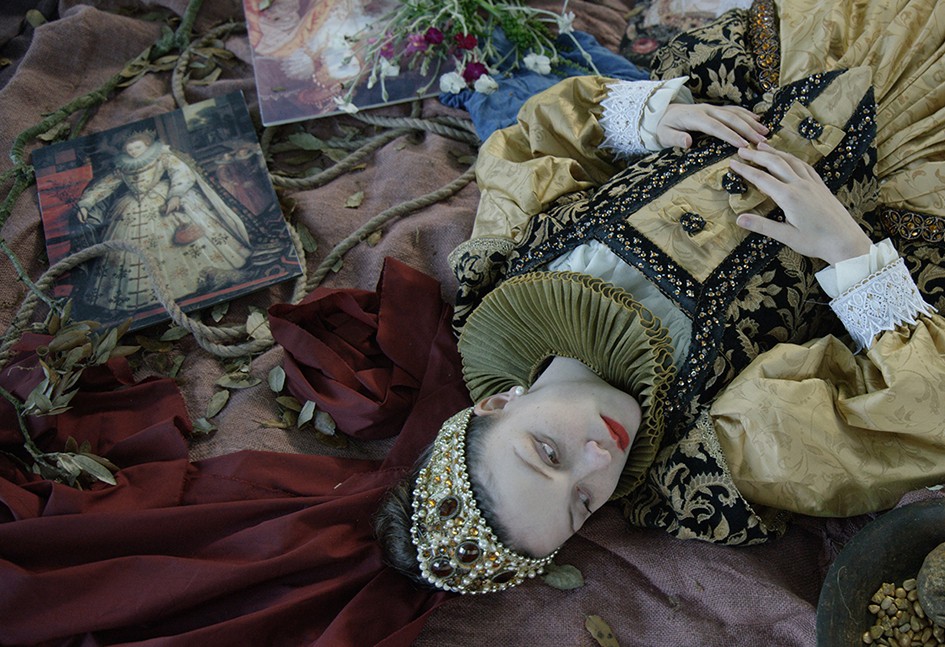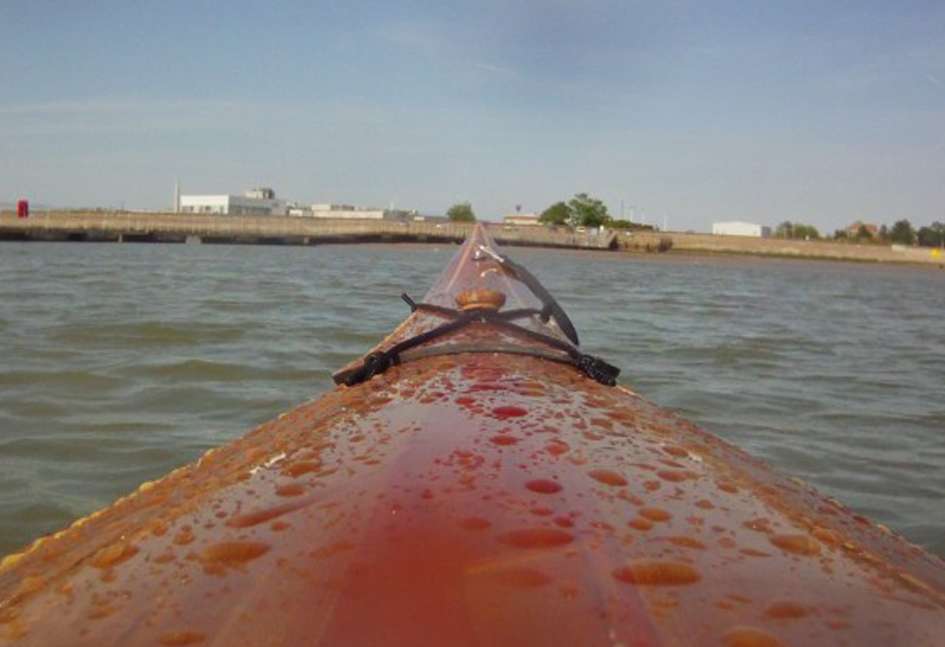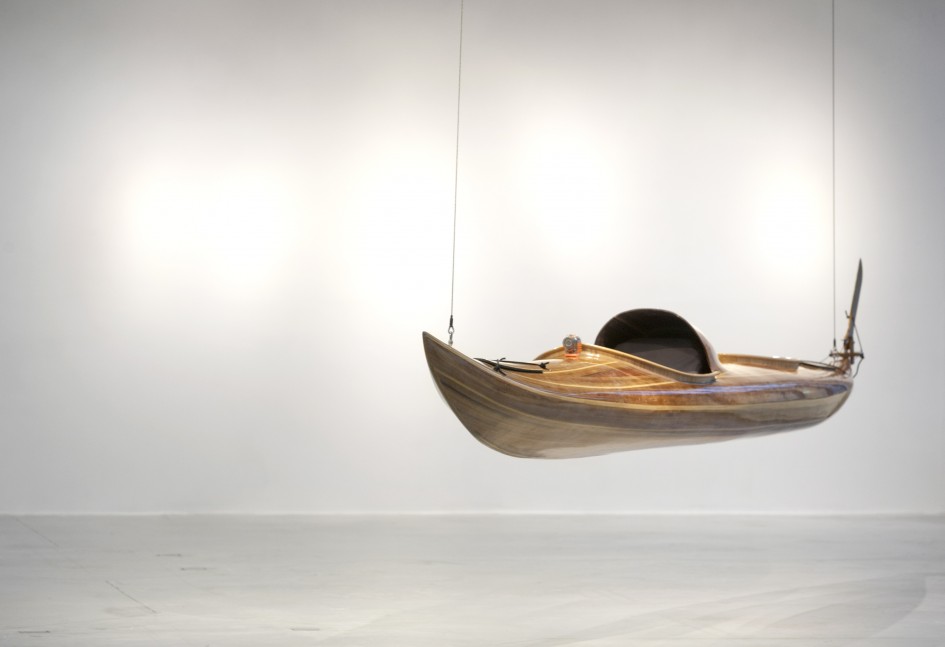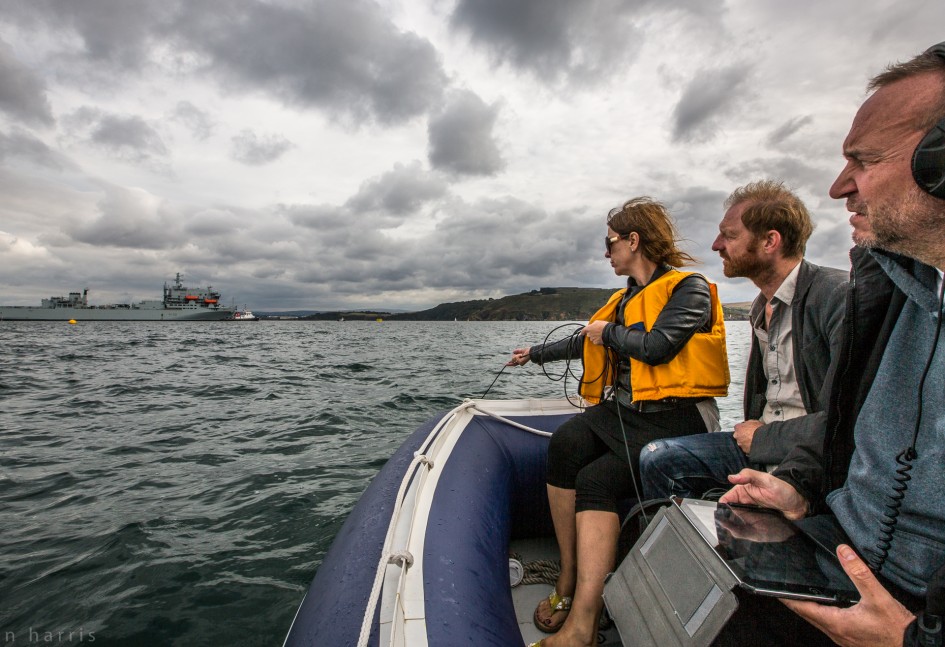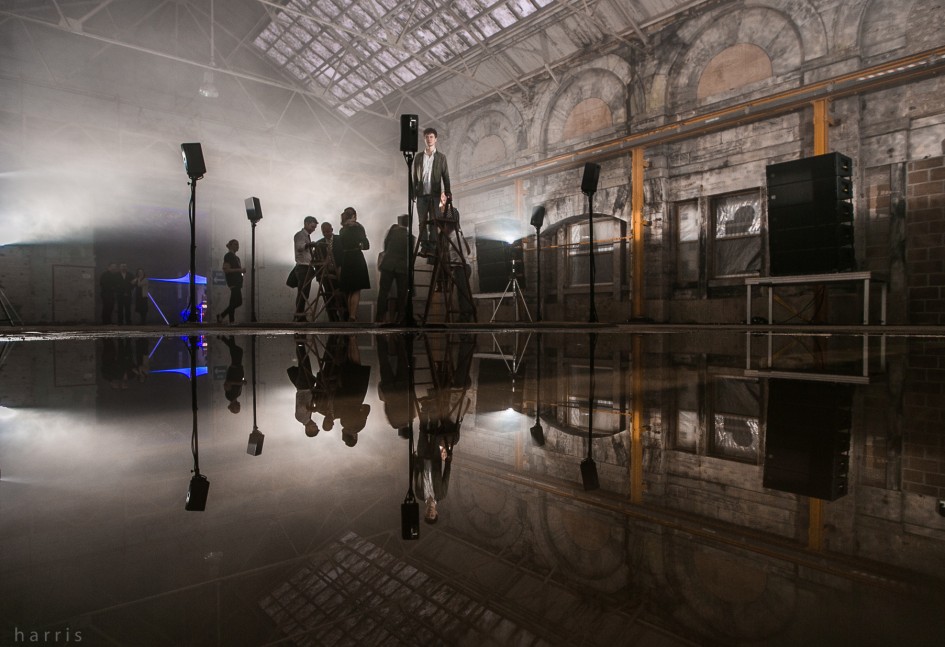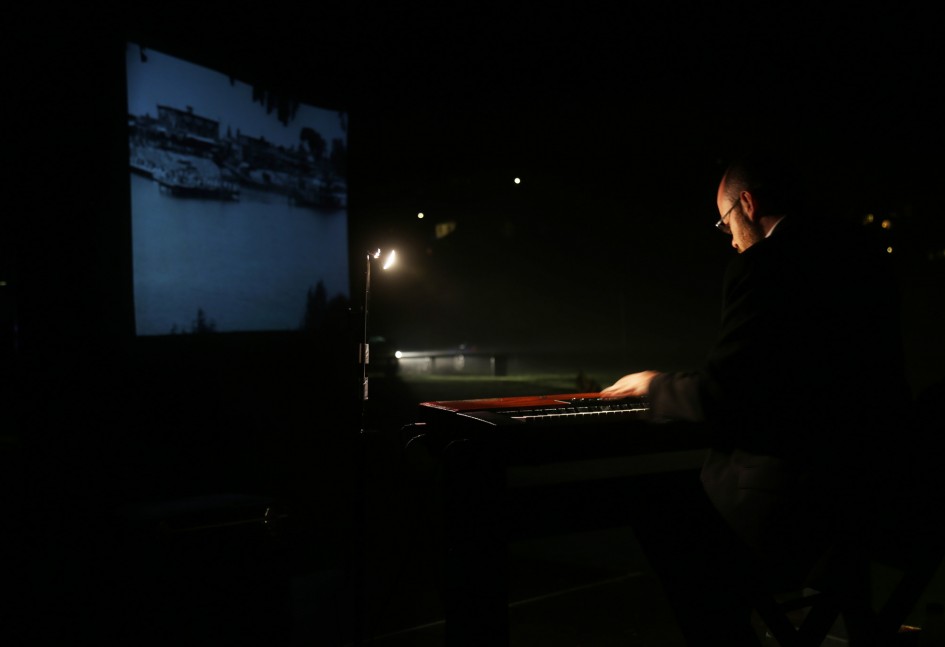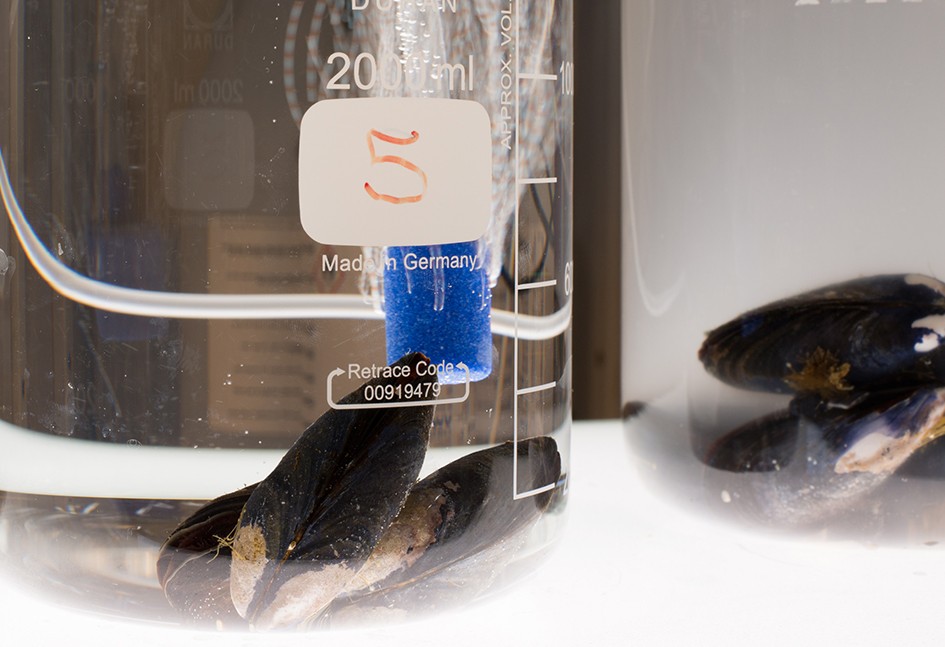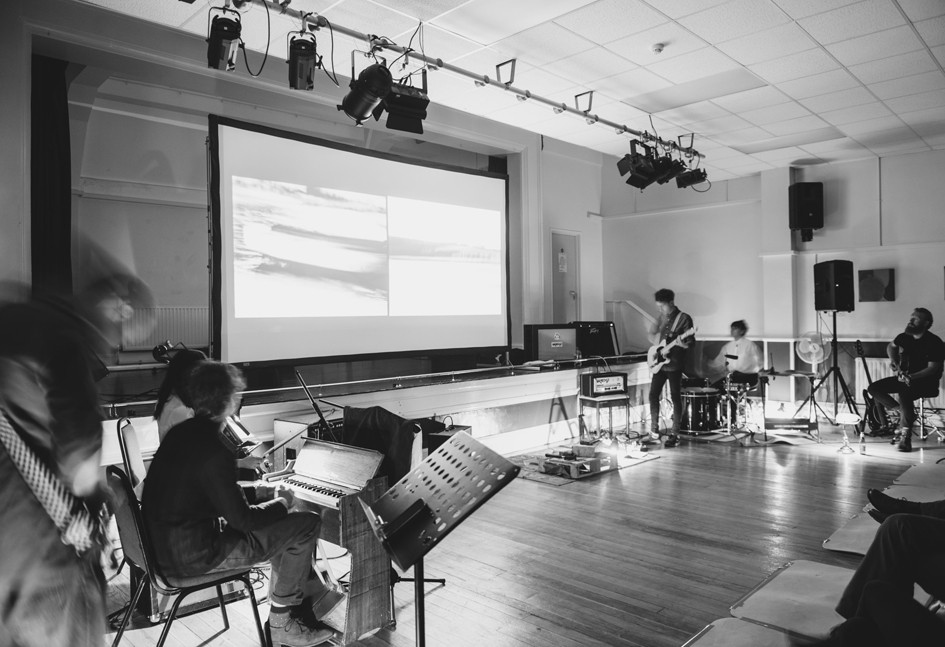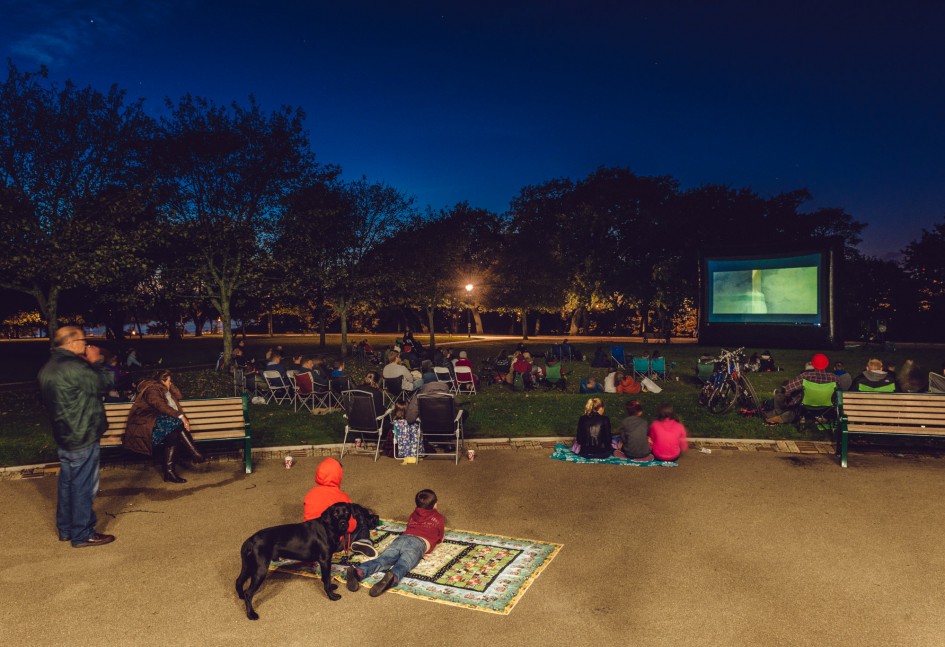The project was formally established in 2012 and was based at the University of Plymouth from 2013-18, hosted by Peninsula Arts in partnership with the Marine Institute and Centre for Sustainability.
Development of the River Tamar Project and Ghost
Mike Hooton combined his background in arts education and a personal interest in the Tamar as his inspiration to develop a project that would use contemporary art and education to foster a discussion around the future of the river.
From an initial study in 2001 by Stephen Hetherington (formerly of Salford Quays), two ideas were developed to create the project. The first initiative was for a solar-powered floating classroom and the other idea was for a public art strategy for the River Tamar; a programme involving the engagement and commissioning of artists to produce temporary and permanent work examining the context of the river. In 2010 the project, supported by the Tamar Valley AONB and funding from Arts Council England, commissioned Isabel Vasseur of Art Office to prepare an arts strategy. This arts strategy was developed to support the overall vision of the River Tamar Project to envisage new uses for the River Tamar.
In 2012 the project was joined by founding Artistic Director, Paula Orrell, to deliver the project’s first commission by acclaimed artist Adam Chodzko.
Originally conceived for the 2010 Whitstable Biennial, Ghost is a kayak (a sculpture, a vessel, a coffin, a bed and a camera rig). Ghost was created to accommodate a canoeist in the back and a passenger at the front. Separated from the rower by a dome in the deck of the kayak, the passenger lies flat in the vessel – at the level of the water – with their head slightly raised. This viewpoint offers a unique perspective of the river and its banks, allowing the passenger to consider their concept of the river and their relation to it.
You can find out more about Ghost, including videos of the trips and interviews with participants here.
It’s All About the River and Fathom

After Ghost the River Tamar Project joined Plymouth University, hosted by Peninsula Arts, in order to continue to commission and work with creative practitioners who occupy the space between art, architecture, design, science and technology.
With the remit to work with the communities who live along the 22-mile stretch of the river’s tidal length and the surrounding rural area, including West Devon, East Cornwall and Plymouth, the agency’s approach was to create projects that considered this natural asset and would help develop new thinking and innovative ideas for the river’s future, whilst understanding its past.
The first project delivered in partnership with Plymouth University was Fathom, an interactive sound installation by Jane Grant and John Matthias, which had its debut at Royal William Yard as part of the 2014 Ocean City Festival.
Fathom immersed visitors in an underwater sound-environment, created with waves of live and recorded sound, that changed as they moved around the space. Above the 6ft point, marking the surface of the water, the soundscape shifted again to represent the air, with traces of birdsong and human-made sounds. You can read more about Fathom and watch a video of the piece here.
In the Autumn of 2014 the River Tamar Project delivered the large scale and ambitious film festival It’s All About the River which aimed to explore the historical and future connections of local and international communities with the river.
Running through September and October, the festival featured new commissions from local, national and international artists and filmmakers, including the recent Arts Council Collection acquisition Tropikos by John Akomfrah and new works by acclaimed artists Uriel Orlow and Melanie Manchot. The commissions were shown alongside screenings of popular and cult classics in unusual settings along the banks of the Tamar.
You can find out more about It’s All About the River, the commissioned films and the accompanying education project here.
